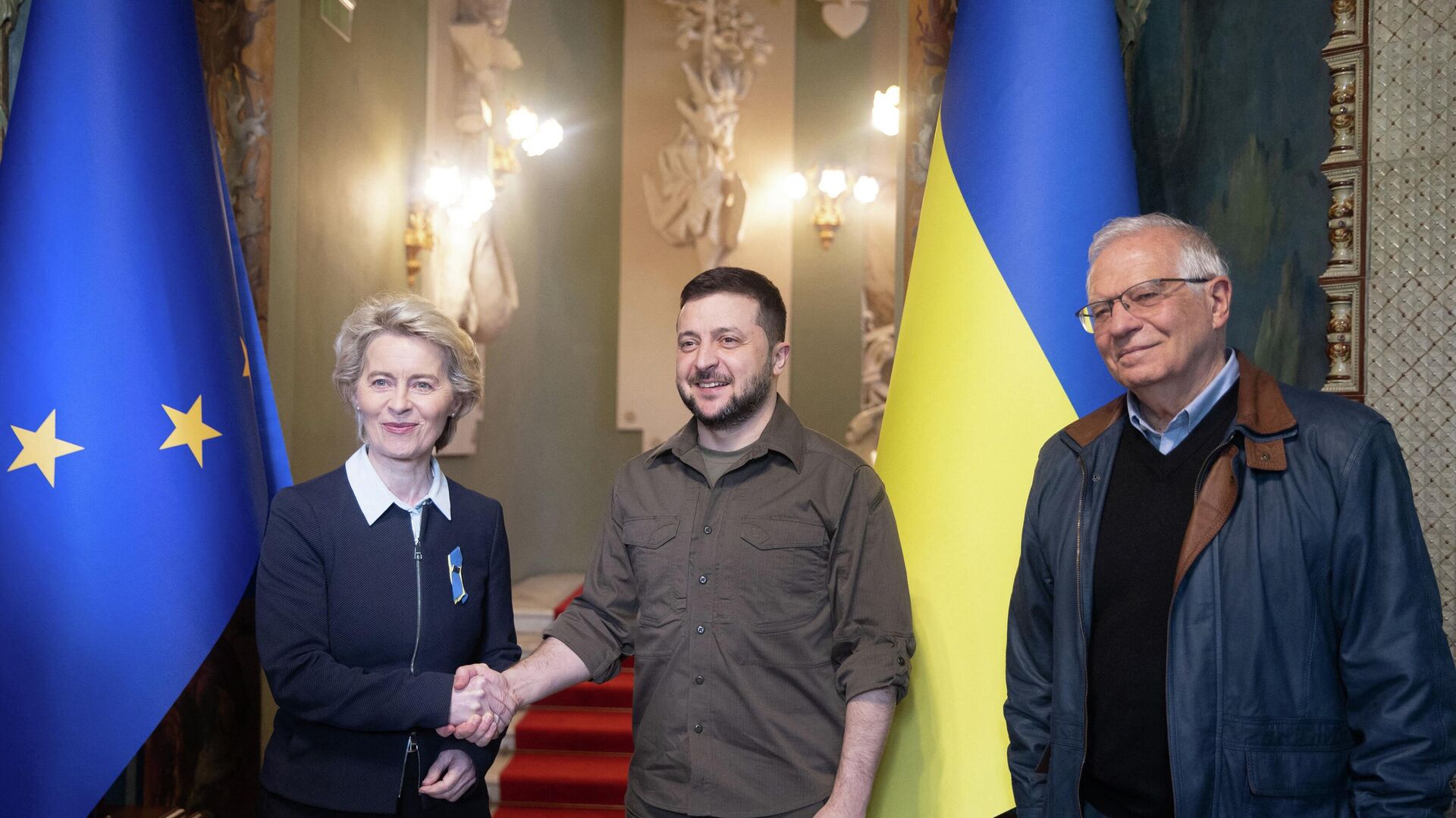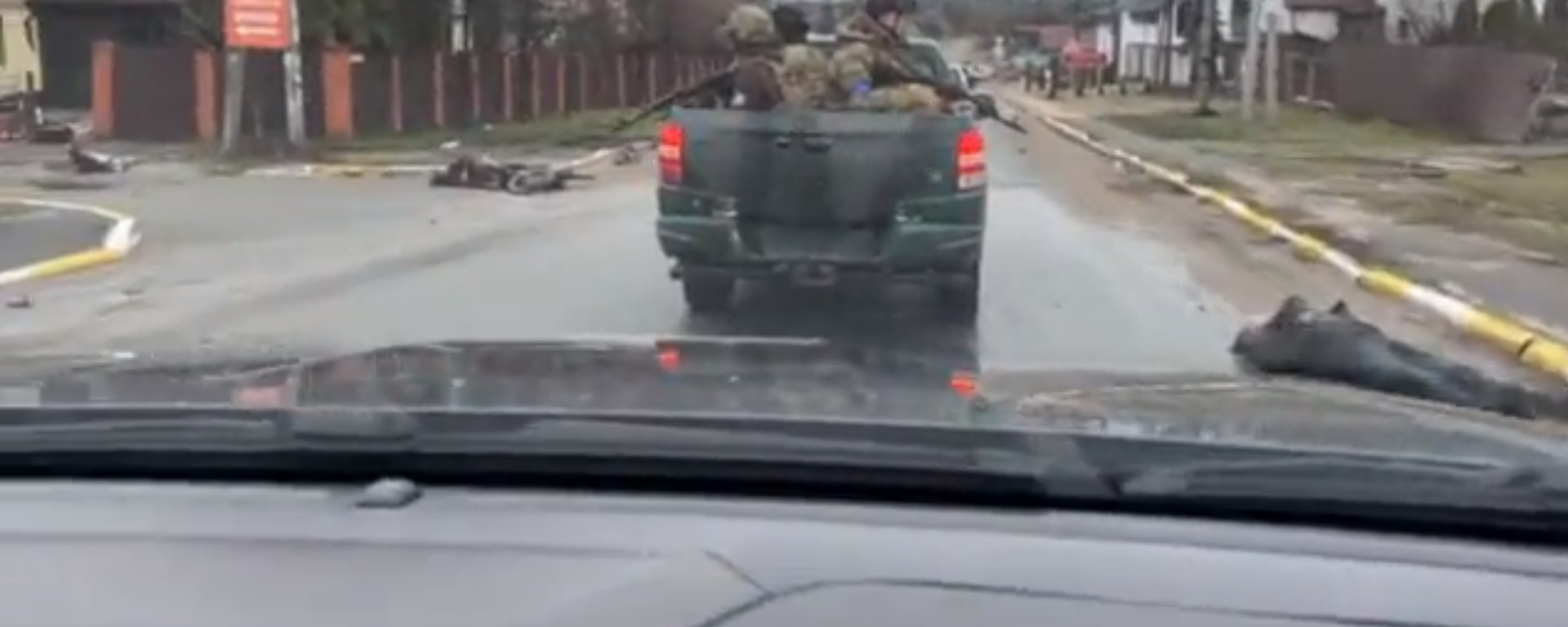https://sputnikglobe.com/20220409/eu-top-diplomat-calls-for-military-resolution-of-ukrainian-conflict-1094625749.html
EU Top Diplomat Calls for Military Resolution of Ukrainian Conflict
EU Top Diplomat Calls for Military Resolution of Ukrainian Conflict
Sputnik International
MOSCOW (Sputnik) - EU High Representative for Foreign Affairs Josep Borrell said on Saturday that the Ukrainian conflict will end on the battlefield and... 09.04.2022, Sputnik International
2022-04-09T17:51+0000
2022-04-09T17:51+0000
2022-10-19T20:58+0000
russia's special operation in ukraine
josep borrell
russia
ukraine
https://cdn1.img.sputnikglobe.com/img/07e6/04/09/1094625724_0:0:3133:1762_1920x0_80_0_0_11279d9a32f6639fe1e6f015cc8f4c5c.jpg
"This war will be won on the battlefield. Additional €500 million from the #EPF are underway. Weapon deliveries will be tailored to Ukrainian needs," Borrell said on Twitter.He suggested that the EU also increases sanctions pressure on Russia, in particular in the energy sector."On Monday, I am convening an EU Foreign Affairs Council to discuss next steps," Borrell said.Commenting on Borrell's statement, Russian Foreign Ministry spokeswoman Maria Zakharova said that the European Union has become NATO’s economic relations department.On Friday, Borrell and European Commission President Ursula von der Leyen met with Volodymyr Zelensky in Kiev in order to assess the situation and exchange views with the Ukrainian leadership. The delegation also visited the town of Bucha, where the Kiev regime had staged a provocation against the Russian military.On 24 February, Russia launched a military operation in Ukraine after the breakaway republics of Donetsk and Lugansk appealed for help in defending themselves against Ukrainian provocations. In response, the EU rolled out a comprehensive sanctions campaign against Moscow, which includes airspace closures and restrictive measures targeting numerous Russian officials and entities, media and financial institutions.
https://sputnikglobe.com/20220409/zelensky-says-senior-european-politician-asked-him-if-bucha-provocation-was-staged-1094618296.html
ukraine
Sputnik International
feedback@sputniknews.com
+74956456601
MIA „Rossiya Segodnya“
2022
Sputnik International
feedback@sputniknews.com
+74956456601
MIA „Rossiya Segodnya“
News
en_EN
Sputnik International
feedback@sputniknews.com
+74956456601
MIA „Rossiya Segodnya“
Sputnik International
feedback@sputniknews.com
+74956456601
MIA „Rossiya Segodnya“
josep borrell, ukraine
EU Top Diplomat Calls for Military Resolution of Ukrainian Conflict
17:51 GMT 09.04.2022 (Updated: 20:58 GMT 19.10.2022) MOSCOW (Sputnik) - EU High Representative for Foreign Affairs Josep Borrell said on Saturday that the Ukrainian conflict will end on the battlefield and pledged additional 500 million euro ($543 million) from the European Peace Facility (EPF) to Kiev.
"This war will be won on the battlefield. Additional €500 million from the #EPF are underway. Weapon deliveries will be tailored to Ukrainian needs," Borrell said on Twitter.
He suggested that the EU also increases sanctions pressure on Russia, in particular in the energy sector.
"On Monday, I am convening an EU Foreign Affairs Council to discuss next steps," Borrell said.
Commenting on Borrell's statement, Russian Foreign Ministry spokeswoman Maria Zakharova said that the European Union has become NATO’s economic relations department.
The chairman of the Russian parliament's lower house, Vyacheslav Volodin, called for Borrell's resignation over the controversial tweet, stressing that the EU top diplomat's duty is to "seek a solution through diplomacy."
On Friday, Borrell and European Commission President Ursula von der Leyen met with Volodymyr Zelensky in Kiev in order to assess the situation and exchange views with the Ukrainian leadership. The delegation also visited the town of Bucha, where the Kiev regime had staged a provocation against the Russian military.
On 24 February, Russia launched a
military operation in Ukraine after the breakaway republics of Donetsk and Lugansk appealed for help in defending themselves against Ukrainian provocations. In response, the EU rolled out a comprehensive sanctions campaign against Moscow, which includes airspace closures and restrictive measures targeting numerous Russian officials and entities, media and financial institutions.



